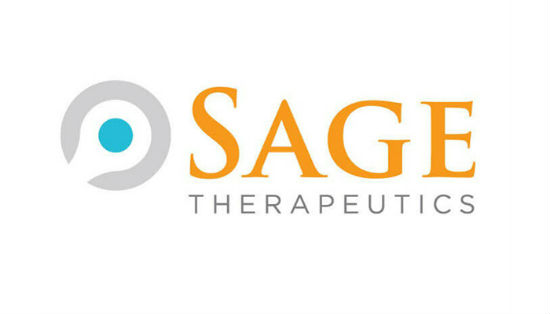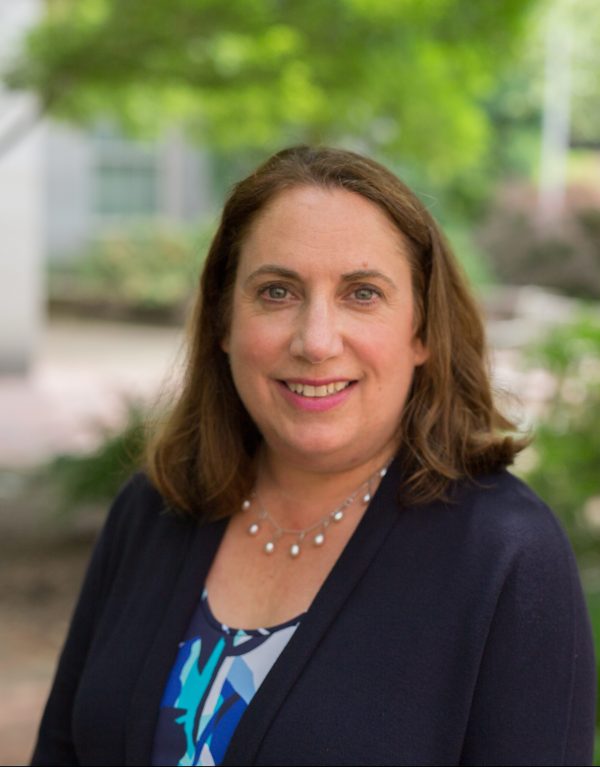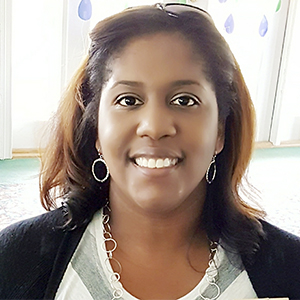
UNC, Sage Therapeutics Bring Hope to Women with Postpartum Depression

Sage Therapeutics, a Boston-area biopharmaceutical company, has declared Raleigh its “second home” by opening a groundbreaking patient-support headquarters here called Sage Central.
That was the declaration from Mike Cloonan, the company’s chief business officer, in recent remarks at a ribbon-cutting for Sage Central, a new Raleigh-based national case management and call-in support center for women taking Sage’s newly approved treatment for postpartum depression (PPD).
The U.S. Food and Drug Administration approved the breakthrough medicine Zulresso (brexanolone) in March. That approval, and the opening of the support center, are the latest milestones in a six-year relationship the company has had with the pioneering work in PPD at the University of North Carolina School of Medicine.

-- Sage Therapeutics
Zulresso is the only treatment specifically indicated for PPD, a biologically based medical condition affecting an estimated one in nine – or more – mothers during the first year after giving birth. It differs from other treatments used previously because it requires hospitalization for a 60-hour inpatient infusion. However, it has shown to begin symptom relief within 24 hours. Most other treatments for PPD have been pills, often selective serotonin reuptake inhibitor (SSRI) antidepressants, requiring weeks or months to begin to take effect.
UNC scientist Samantha Meltzer-Brody, M.D., M.P.H., a pioneer in treatment of PPD, became a proponent of the Zulresso approach to battling the debilitating disorder the first time she saw its power six years ago. In 2011 she led opening of the first U.S. inpatient perinatal psychiatry unit at UNC Hospitals, and became principal investigator for the clinical trials of the drug conducted at more than 20 sites nationwide.

-- UNC photo
“What I saw that night [during first studies] was transformative in seeing robust treatment response unlike anything I’ve ever seen in my career. Six years later, after Phase 2 and Phase 3 multi-site clinical trials, the drug is approved and will be available,” said Meltzer-Brody, the Ray M. Hayworth and Family Distinguished Professor of Mood and Anxiety Disorders and director of the Perinatal Psychiatry Program, UNC Center for Women’s Mood Disorders, at UNC HealthCare and School of Medicine.
“This is such an enormous step forward for the field. For the last 20 years in my work with this patient population there is nothing more difficult than seeing a mother and her family suffering with terrible depressive symptoms and knowing that I would start a medication that could take weeks or months to work” she said. “For families where you have someone depressed, that may be suicidal, that’s not functioning, it is excruciating. To be able to see a treatment effect within 24 hours of a 60-hour infusion, and then have that maintained, is unbelievably dramatic.”
About Sage Central
The purpose of Sage Central is to provide case-management services to patients once they have seen a health care provider and are prescribed Zulresso. The case managers will help patients obtain insurance coverage or find alternatives ways to pay for the treatment if they are uninsured. They will also help patients navigate the logistical issues of arranging an inpatient hospital stay for the 60-hour infusion, which can be daunting for a mother suffering from depression and her family. Depending upon the hospital services available, the baby may need to stay with another caregiver.
“The drug itself isn’t enough,” said Cloonan, the Sage CBO. “We needed to put something like Sage Central in place, because there’s some complexities to Zulresso. We are committed to changing the paradigm in postpartum depression. For too long, moms have suffered in silence. I feel like we’re failing moms in the U.S. It shouldn’t be this way and I think Sage Central has a chance to put an extra support around moms and their families.”
Cloonan said that the company chose Raleigh as the location of the 15,000-square-foot support center in the Brier Creek area over “100 other potential sites,” a decision applauded especially by Laura Gunter, membership and government affairs director with NCBIO, who spoke at the event.
Carrie Brown, M.D., M.P.H., chief medical officer for behavioral health and intellectual and development disability with the North Carolina Department of Health and Human Services, echoed Gunter’s welcome. She underscored DHHS Secretary Mandy Cohen’s and Governor Roy Cooper’s commitment to maternal and child health, particularly with respect to access to treatment for PPD, and called for the expansion of Medicaid in North Carolina.
About Postpartum Depression
The U.S. Centers for Disease Control and Prevention estimate an average of 11.5% of new mothers experience symptoms of PPD beginning up to one year after delivering a baby (over 400,000 per year), though that number is misleading. Rates vary by state, with North Carolina above the national average, and estimates are that approximately half of PPD cases may go undiagnosed.
Symptoms may include feeling sad, hopeless, empty, overwhelmed or overly anxious. Behaviors may include avoiding friends and family, losing interest in activities that are usually enjoyable, having difficulty bonding with the baby and, in severe cases, thoughts of harming oneself or the baby. However, symptoms vary by individual patient.
The reasons PPD often goes undiagnosed are complex. For one, it is a highly stigmatized condition, which causes feelings of reluctance, shame, embarrassment and fear of judgment as a failure by new mothers and often prevents them or their partners from seeking help. Others are lack of education and awareness about the symptoms and how common the condition actually is.
Birth mothers typically have a postpartum checkup four weeks after delivery. If there are no physical complications, that may be the last time they see a health provider for their own care for a long time. In the ensuing fog of sleep deprivation and round-the-clock care of an infant, along with other responsibilities, symptoms may develop that are more severe than typical new-parent exhaustion and concerns about the baby or stress from adjusting to this new life role. Yet, without knowledge of when and how to or resources for accessing help – in the context of such stigma – their needs often go unmet. Not only does the woman suffer, but the mother-baby bond can suffer, the wellbeing of the baby and the entire family system involving the partner and other children can suffer as well.

“It wasn’t until I began my own journey to healing and recovery with a plan of self-care, informed health care and support that I was able to achieve wellness,” explained Danielle Little, awareness committee chair of the North Carolina Chapter of Postpartum Support International (PSI), a maternal child educator and survivor of PPD, who spoke at the event. “There are a number of barriers to care. There are personal barriers, social barriers, cultural barriers. I think one of the largest barriers is education. Our health care professionals are grossly undereducated on perinatal health and mood and anxiety disorders.”
PSI is a world-wide organization that offers training to health-care professionals about PPD and, according to Little, has trained over 700 in North Carolina. The organization also provides support, information, resources and education for distress during pregnancy and postpartum to mothers and their families. It advocates for access to mental health care, an end to stigma and partners with organizations like Sage Therapeutics.
About Zulresso and Sage Therapeutics
Zulresso modulates the synaptic and extrasynaptic GABAA receptors in the brain and central nervous system (CNS). The GABA system is the major inhibitory signaling pathway of the CNS. It acts as the brake on nerve activity and calms the brain. When out of balance, this pathway potentially contributes to mood and movement disorders.
The FDA evaluated Zulresso under priority review, a system reserved for investigational therapies that, if approved, may offer significant improvements in the treatment, prevention or diagnosis of a serious condition. In 2016, the FDA granted the drug a breakthrough therapy designation, underscoring the significant unmet need in women with PPD. The morning of the Sage Central event, the drug passed the last hurdle necessary before going to market: scheduling by the U.S. Drug Enforcement Agency.
Sage Therapeutics is a clinical-stage biopharmaceutical company developing novel medicines to improve the lives of patients with life-altering CNS disorders. The company focuses its research and development efforts on modulation of the GABA and NMDA receptors within the CNS. The NMDA neurotransmitter system is the major excitatory pathway. NMDA receptors, when activated, increase signaling between nerve cells and play a critical role in stabilizing neural networks. When out of balance, the system contributes to numerous cognitive dysfunction disorders.
